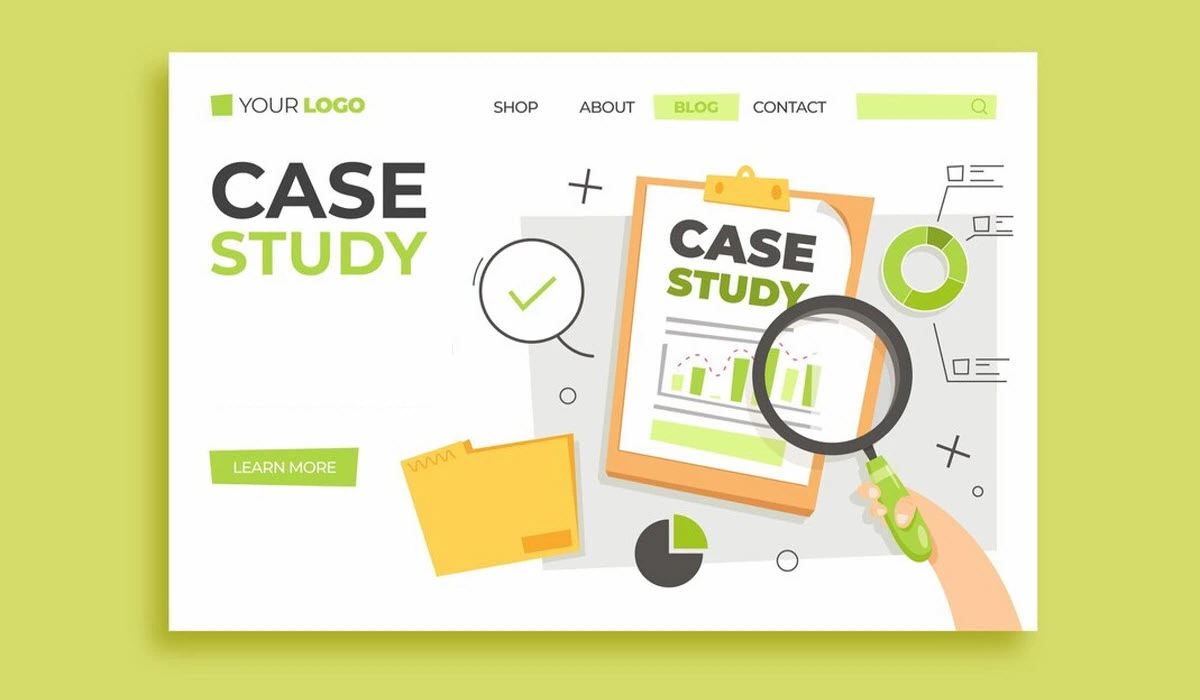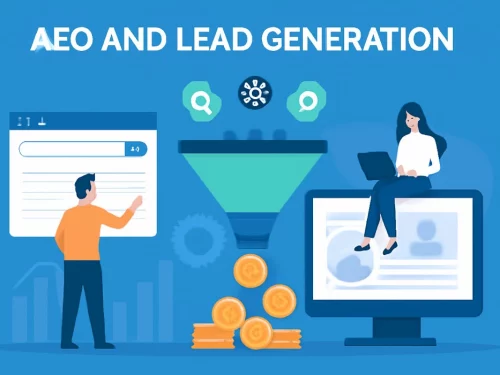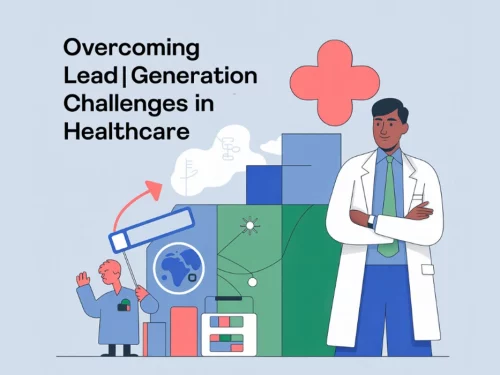Overcoming Marketing Challenges in the Finance Industry
The finance industry is incredibly competitive, and standing out can feel like a constant uphill battle. Whether you’re a financial advisor, investment firm, or lending institution, building trust with potential clients is no easy feat. Clients expect transparency, credibility, and most importantly, proven results. Traditional marketing strategies often struggle to communicate these qualities effectively, especially when dealing with savvy, skeptical consumers who demand reassurance before committing to your services.
So, how do you break through the noise and win over new clients? The solution is simpler than you might think: case studies.
Understanding the Power of Case Studies in Lead Generation
Case studies are one of the most valuable tools for marketers, particularly in industries like finance. They allow you to demonstrate, in detail, how your services have solved problems and delivered tangible results. By showcasing real-world success stories, case studies build trust and credibility—two essential components for converting leads in the highly competitive finance sector.
A well-crafted case study shows potential clients exactly how your services can be applied to their unique financial challenges. When these stories are presented in a compelling way, they help guide cold leads through the sales funnel, turning interest into actionable conversions.
A Cautionary Tale: The Fall of Theranos – A Fintech Product That Lost Trust
While not a traditional fintech product, Theranos offers an important lesson for fintech companies about the devastating effects of losing trust—particularly when your product or service deals with sensitive information like people’s finances, health, or data.
The Product:
Theranos was initially celebrated for its revolutionary blood-testing device, promising to deliver accurate results from just a few drops of blood. This device was meant to offer an affordable, accessible alternative to traditional medical testing, capturing the attention of both investors and the public.
Initial Success:
Theranos raised over $700 million and was valued at $9 billion at its peak. Its charismatic founder, Elizabeth Holmes, gained widespread attention and built relationships with high-profile investors and partners like Walgreens. The product was poised to disrupt the healthcare industry.
Trust Breakdown:
However, everything unraveled when investigations revealed that the technology was unreliable and not functioning as promised. The company had misled investors, regulators, and patients by using traditional machines for testing while claiming their proprietary device was doing the work. As trust in Theranos faded, so did its credibility, leading to legal battles, regulatory scrutiny, and a complete collapse of the company.

Lessons for Fintech and Product Development
1. Transparency is Crucial:
In fintech, like health tech, products often deal with sensitive data—whether financial transactions, personal details, or confidential client information. Misleading claims or lack of transparency can have disastrous consequences. Fintech products must be transparent about how they work, including potential risks and limitations.
2. Trust in Technology is Everything:
In fintech, your products rely heavily on consumer confidence. If customers feel that the technology is unreliable or insecure, trust is quickly lost. It’s not just about technical excellence but about accountability and integrity.
3. Regulation and Compliance Are Non-Negotiable:
Regulatory compliance is crucial in the fintech space. Companies that fail to meet these standards risk fines, legal action, and irreparable damage to their reputation. Theranos’s downfall was a result of non-compliance with regulatory standards, and fintech companies must learn from this lesson.
4. Once Trust Is Lost, It’s Hard to Regain:
The Theranos case illustrates just how difficult it is to rebuild trust once it’s lost. In fintech, once customers lose confidence in a product or service, it’s incredibly challenging to regain their trust. Fintech companies must prioritize maintaining trust at every stage of their operations.
Key Takeaway for Fintech Products
To thrive in the fintech industry, companies need to deliver innovative solutions, but more importantly, they must build and maintain trust with customers. This involves transparent communication, regulatory compliance, and a consistent commitment to their customers’ financial well-being. Without trust, even the most innovative products will falter, as seen in the Theranos debacle.
Real-World Examples of Fintech Companies Successfully Using Case Studies for Lead Generation
To inspire your lead-generation strategy, here are some fintech companies that have effectively used case studies to build trust and convert leads:
1. Stripe – Payment Processing Platform
- Case Study Focus: Stripe has used case studies to showcase how its payment solutions help businesses across various sectors streamline their payment processes and increase efficiency.
- Example: Stripe highlights its partnership with Shopify, showing how integrating Stripe improved the user experience and increased conversions for Shopify merchants.
- How It Helps Lead Generation: These case studies demonstrate how well-known companies trust Stripe, building credibility and encouraging new customers to sign up.
- Stats & Facts: A 2019 Stripe survey found that 40% of businesses experienced a significant increase in sales after switching to Stripe due to its faster transaction speed and lower processing fees.
2. LendInvest – Property Lending Platform
- Case Study Focus: LendInvest uses case studies to show how it helps property developers and investors quickly access funding.
- Example: A case study focuses on Greenwich Estates, which used LendInvest’s short-term loans to successfully finance a luxury residential project.
- How It Helps Lead Generation: By showcasing the speed and ease of the lending process, LendInvest builds trust with potential borrowers.
- Stats & Facts: LendInvest reports that 60% of its users close deals faster with their platform than through traditional banks.
3. Adyen – Global Payments Solution
- Case Study Focus: Adyen’s case studies highlight how they streamline global payment solutions for large enterprises.
- Example: Spotify’s case study shows how Adyen helped them scale their international payment system, reducing fraud and improving user experience.
- How It Helps Lead Generation: Featuring large, trusted companies like Spotify helps position Adyen as a reliable solution for global payment challenges.
- Stats & Facts: Adyen reports that businesses using its platform saw a 25% reduction in payment fraud due to its advanced security protocols.
4. Plaid – Financial Data Aggregation Service
- Case Study Focus: Plaid uses case studies to demonstrate how its API connects fintech apps with users’ bank accounts.
- Example: Venmo’s case study illustrates how Plaid’s technology powers secure bank account linking and data aggregation, which enhances the user experience.
- How It Helps Lead Generation: Plaid’s case studies position the company as a trusted data aggregator for fintech developers.
- Stats & Facts: Plaid reports that 80% of U.S. fintech users rely on their services to connect and verify their bank accounts.
5. Kabbage – Online Lending Platform
- Case Study Focus: Kabbage uses case studies to show how small businesses benefit from quick access to funding through their automated platform.
- Example: Madison Reed, a beauty brand, shares how Kabbage helped them secure the funds they needed to grow quickly and launch new products.
- How It Helps Lead Generation: Kabbage’s case studies show the tangible benefits of fast, reliable funding, helping businesses understand how their platform can help them scale.
- Stats & Facts: According to Kabbage, 90% of customers reported an increase in revenue after accessing funds through the platform.
Explore the Power of Case Studies: Videos to Boost Your Marketing Strategy
Want to take your case study strategy to the next level? Check out these videos for expert insights on how to effectively use case studies for lead generation and building trust with your audience.
Building Trust with Case Studies
Learn how to craft compelling success stories that resonate with your target audience and establish credibility.
Maximizing Lead Generation with Case Studies
Discover practical tips on how to position and leverage your case studies to turn them into high-conversion tools.
Additional Tactics to Supercharge Your Lead Generation:
- Partner with a Data Provider – Collaborating with a reliable data provider allows you to gain deeper insights into customer behavior and market trends. This enriched data can help you create more targeted case studies and refine your lead-generation efforts. By understanding the nuances of your target audience, you can tailor your marketing to address their specific needs and pain points, making your case studies even more impactful.
- Call Valuable Leads Directly – While digital strategies like email marketing and social media are important, nothing beats the personal touch of a phone call. Calling valuable leads directly can help you establish rapport and engage them in meaningful conversations. It also gives you an opportunity to personalize your pitch based on the insights you’ve gathered from their behavior and interactions with your content.
- Leverage Intent Data – Intent data is an essential tool for identifying which leads are actively searching for solutions similar to what your business offers. By tracking online behavior such as content consumption, searches, or specific interactions with your website, you can prioritize leads that are most likely to convert, allowing you to focus your efforts on high-intent prospects.
- Use Email Marketing to Nurture Leads – Email marketing remains one of the most effective tools for nurturing leads. By sending regular newsletters, personalized offers, and relevant case studies, you can keep your audience engaged and encourage them to take the next step in the sales funnel. The key is consistency and providing value in every communication.
- Build a Personal Brand – Building a personal brand in the financial sector can help distinguish you from competitors. Sharing insights, success stories, and your expertise through blogs, social media, and video content helps you build authority and trust with potential clients. Your personal brand can humanize your business and foster stronger relationships with leads.
- Monitor Your Competition – Keeping an eye on your competitors can reveal opportunities to differentiate your brand. By studying their case studies, content strategies, and customer engagement efforts, you can identify gaps and areas where you can offer unique value. This helps ensure that your case studies and marketing messages stand out from the crowd.
- Foster Strategic Partnerships and Collaborations – Strategic partnerships can expand your reach and introduce your services to new audiences. Whether it’s through partnerships with other businesses in the finance sector or collaborations with influencers, forming these alliances can increase your brand visibility and help drive more qualified leads.
- Optimize for Local SEO – For financial services targeting a specific geographic area, local SEO is crucial. Ensure that your website and case studies are optimized for location-specific keywords. By appearing in local search results, you can attract nearby prospects who are actively seeking financial services in their region.
- Offer Ungated Content – Ungated content is a powerful tool for building trust with potential leads. By providing valuable resources like case studies, eBooks, or financial guides without asking for anything in return, you can show prospects that you’re genuinely interested in helping them. This approach makes it easier for leads to engage with your brand, as they can access valuable information freely.
- Utilize Paid Ads on Facebook – Facebook ads can be an effective way to reach a highly targeted audience. With Facebook’s detailed targeting options, you can promote your case studies and lead-generation campaigns to individuals who fit your ideal customer profile. The paid ads can help boost your case studies’ visibility and drive more qualified leads to your business.
- Host Webinars and Virtual Events – Webinars and virtual events allow you to showcase your expertise and interact with potential leads in real-time. By sharing your success stories and case studies during these events, you can answer questions, offer personalized advice, and establish stronger connections with your audience. These events are great for building trust and engaging with your prospects on a deeper level.
- Implement Referral Programs – Referral programs tap into the networks of your existing clients. By incentivizing your clients to refer others to your services, you can generate high-quality leads who are more likely to convert. A well-designed referral program turns your satisfied customers into advocates who help drive more business.
- Engage in Conversational Marketing – Conversational marketing uses live chat, chatbots, or instant messaging to engage visitors on your website in real-time. By addressing their concerns, answering questions, and providing personalized recommendations instantly, you can increase the likelihood of conversion. This type of direct, personalized engagement helps build trust and can accelerate lead generation.
Explore More Resources:
For more insights into lead generation strategies, explore these additional resources:
Conclusion
Incorporating case studies into your marketing strategy is a game-changer. By clearly showcasing the challenges your clients faced, the solutions you provided, and the measurable results, you create a compelling story that resonates with your audience. By enhancing these case studies with multimedia elements like videos, infographics, and client testimonials, you can further engage your prospects and make your content more relatable.
At EvenDigit, we specialize in creating impactful case studies that generate results. If you’re ready to take your lead generation to the next level and need expert help, feel free to reach out. We’re here to help you turn your success stories into high-conversion tools for your business.
Take Action Today!
Don’t wait to transform your case studies into powerful lead-generation assets. Reach out to EvenDigit today, and let’s craft a strategy that drives results!
EvenDigit
EvenDigit is an award-winning Digital Marketing agency, a brand owned by Softude (formerly Systematix Infotech) – A CMMI Level 5 Company. Softude creates leading-edge digital transformation solutions to help domain-leading businesses and innovative startups deliver to excel.
We are a team of 70+ enthusiastic millennials who are experienced, result-driven, and hard-wired digital marketers, and that collectively makes us EvenDigit. Read More





